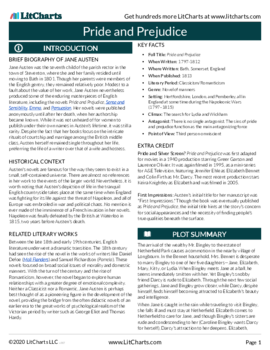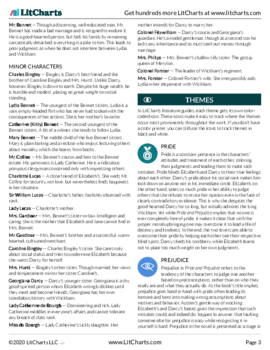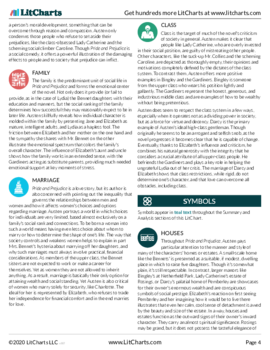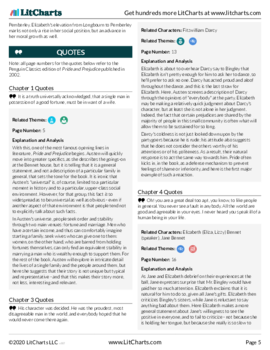- All's Well That Ends Well
- Antony and Cleopatra
- As You Like It
- The Comedy of Errors
- Coriolanus
- Cymbeline
- Hamlet
- Henry IV, Part 1
- Henry IV, Part 2
- Henry V
- Henry VI, Part 1
- Henry VI, Part 2
- Henry VI, Part 3
- Henry VIII
- Julius Caesar
- King John
- King Lear
- Love's Labor's Lost
- A Lover's Complaint
- Macbeth
- Measure for Measure
- The Merchant of Venice
- The Merry Wives of Windsor
- A Midsummer Night's Dream
- Much Ado About Nothing
- Othello
- Pericles
- The Rape of Lucrece
- Richard II
- Richard III
- Romeo and Juliet
- Shakespeare's Sonnets
- The Taming of the Shrew
- The Tempest
- Timon of Athens
- Titus Andronicus
- Troilus and Cressida
- Twelfth Night
- The Two Gentlemen of Verona
- Venus and Adonis
- The Winter's Tale
plus so much more...
-
Lines 1-4
The poem begins with the speaker describing an anonymous woman, saying that in order "To feed one" child, "she worked from home." There, she "took in washing, ironing, [and] sewing" to make ends meet. With only a single "small mouth [to feed]," the speaker says that the woman's "life was a dream."
The poem suggests that because the woman's "Work" is manageable and leaves her time to actually enjoy her life, she doesn't mind doing it. Her life feels balanced. The fact that she's able to "work[] from home" while caring for a young child also suggests the way that her work fits into her life rather than the other way around.
The poem's nine quatrains (or four-line stanzas) each correspond not only with a segment of this woman's life and work but also with an era of human history. The poem can thus be read as being about a single woman feeding her children while simultaneously working as an extended metaphor for the relationship between human beings and the planet.
In this metaphor, the woman can be thought of as representing "Mother Earth," while her children represent humanity. The opening stanza suggests the beginning of human history, when people lived in small communities, taking only what they needed from the earth. Back then, the poem implies, the earth was happy to provide for her "children."
Notice the use of asyndeton in line 2:
took in washing, ironing, sewing.
The lack of any coordinating conjunctions between "ironing" and "sewing" indicates that the list isn't meant to be complete. That is, these three tasks—"washing, ironing, sewing"—suggest the sort of work the woman generally does to provide for her child. There are other tasks along these lines that she also performs, but the speaker doesn't need to list them all out separately—this short list implies them.
The poem is written in free verse, allowing it to feel natural and conversational. And while it does not follow a set meter or rhyme scheme, it contains plenty of musicality, such as the burst of /oo/ assonance, /s/ alliteration, and /p/ consonance in line 3:
One small mouth, a soup-filled spoon,
The sounds in this line are harmonious, working together to evoke the simplicity of the woman's life caring for only one child. These smooth sounds also suggest the balanced and proportional relationship between earth and her "children" in the early days of humanity.

|
PDF downloads of all 3060 of our lit guides, poetry guides, Shakescleare translations, and literary terms.
PDF downloads of all 1915 LitCharts literature guides, and of every new one we publish.
Learn more
|

|
Explanations for every quote we cover.
Detailed quotes explanations (and citation info) for every important quote on the site.
Learn more
|

|
Instant PDF downloads of 136 literary devices and terms.
Definitions and examples for 136 literary devices and terms. Instant PDF downloads.
Learn more
|

|
Compare and contrast related themes.
Compare and contrast Related Themes across different books.
Learn more
|

|
Teacher Editions for all 1915 titles we cover.
LitCharts Teacher Editions for every title we cover.
Learn more
|

|
PDFs of modern translations of every Shakespeare play and poem.
PDFs of modern translations of every Shakespeare play and poem.
Learn more
|

|
Advanced search across our collection.
Advanced Search. Find themes, quotes, symbols, and characters across our collection.
Learn more
|

|
Line-by-line explanations, plus analysis of poetic devices for lyric poems we cover.
Line-by-line explanations, plus analysis of poetic devices for every lyric poem we cover.
Learn more
|


For every lyric poem we cover.



Literature Guide PDFs
LitCharts PDFs for every book you'll read this year.



Quotes Explanations
For all 42,357 quotes we cover.





Teacher Editions
Time saved for teachers.
For every book we cover.
Common Core-aligned



PDFs of modern translations of every one of Shakespeare's 37 plays, 154 sonnets, and 3 longer poems.


Plus a quick-reference PDF with concise definitions of all 136 terms in one place.





















